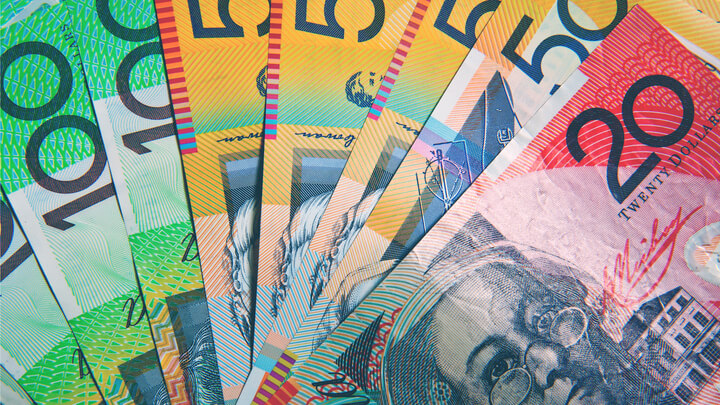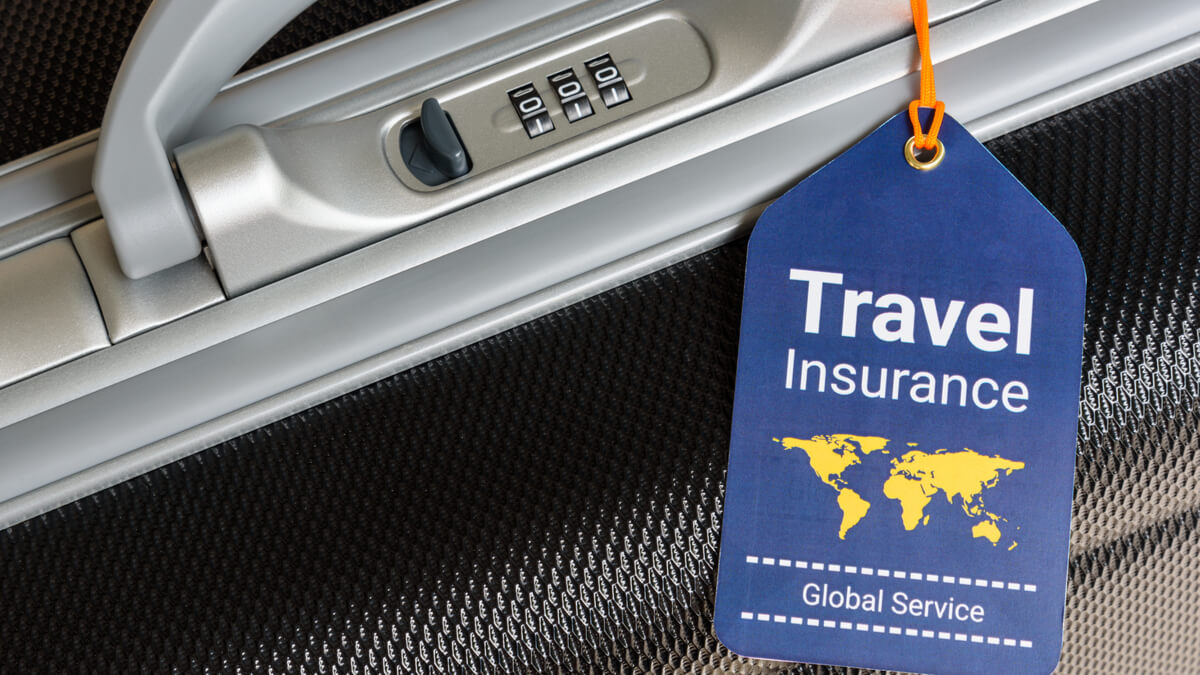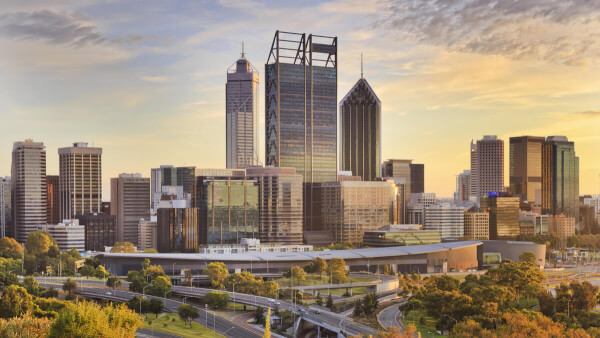Travel Insurance for visitors to Australia. Your quick guide
When you visit any new country, it’s better to be safe than sorry, that’s why organising travel insurance for when those unforeseen situations arise is a...

Australia is an attractive destination. With stunning natural scenery, vibrant cities and a fun, laid back lifestyle, it’s hardly a surprise that so many people dream of creating a new life down under.
Whether you're headed to Australia for a holiday or to start a new life, you’ll be needing some Australian dollars. This guide gives an overview of the banking and currency systems in Australia, so you know how to get - and spend - your cash in Oz.
The official currency of Australia is the Australian dollar. In addition to Australia, the Aussie dollar is used in some of the independent island states like Kiribati and Tuvalu.
| -------- | -------- |
| Dollar Symbols | AUD, A$ (to distinguish it from other dollar currencies) |
| 1 AUD | Each dollar is divided into 100 cents. |
| AUD coins | The coins you’ll see in circulation are 5, 10, 20 and 50 cent pieces, as well as one and two-dollar coins, though most vending machines will refuse to take the smaller 5c coins |
| AUD banknotes | Banknotes are issued in 5, 10, 20, 50 and 100 dollar denominations. The notes are brightly coloured and get progressively longer according to the value. |
Australia was the first country in the world to move from paper banknotes to polymer plastic notes. These can feel strange if you’re not used to them, but offer better protection against counterfeiting. They’re more durable - but can have a tendency to stick together when brand new, so be careful when counting them out.
Because it’s one of the most globally traded currencies, Australian dollars are widely available. Whether you choose to buy your AUD currency at home or wait until you arrive in Australia, the exchange rates shouldn’t vary too much.
As a safety precaution, many travellers choose to travel with very little cash, relying instead on mostly cards and ATM withdrawals when they arrive.
If you do this and need to get some currency upon your arrival, it’s generally best to only exchange a small amount at the airport. The exchange rates of services located in airports and hotels are often fairly poor - so only get what you need and then look for a better deal elsewhere. Otherwise, consider using an ATM to withdraw AUD conveniently at a reasonable exchange rate and fee.
If you decide to change cash when you arrive in Australia, make sure you understand the mid-market rate for AUD and your home currency. The mid-market rate, also known as the interbank rate, is the only real rate and the one you’ll find on Google.
Wherever you are, watch out for hidden charges. Even if an exchange service claims ‘Zero Commission’, they built their profit into the offered rate. To find the fairest deal, use an online currency converter to compare the live mid-market rate to the offered exchange rates. Though the rate is constantly fluctuating, the currency converter can help keep you up-to-date.
Finally, if you need to exchange cash, make sure the banknotes you have with you are clean and crisp. Exchange offices are reluctant to accept notes with any damage at all, which could leave you with a problem if your notes are dirty or crumpled.
Traveller’s Check are rarely accepted in regular Australian businesses, so you’d need to cash them in a bank. This can mean paying relatively high fees - and planning your trip around bank opening hours.
For these reasons, many travellers have ditched Traveller's Checks in favour of using ATMS and debit or credit cards. Consider whether you’re better off doing the same.
Major cards are accepted widely in Australia. That said, it’s usually a comfort to carry some cash in case you are unable to pay by card. If you ever get stuck, use one of the ATM locators below to find a nearby bank machine to withdraw some cash.
It’s also worth telling your bank that you’re planning on travelling in case they suspect fraudulent activity on your cards. This can result in your account being frozen - rendering your cards unusable until you can get ahold of your home bank again.
If paying using a credit or debit card overseas, be aware of something called Dynamic Currency Conversion (DCC). It shows you the cost of the payment in your home currency but converts your money at an unfavourable exchange rate. Be sure to decline paying in your home currency and choose to be charged in the local currency instead.
ATMs are easy to find in Australia - in banks, shopping areas and even inside pubs and restaurants. If you can’t see one immediately, try the locator tools here to find one nearby:
Using ATMs to withdraw cash is the preferred choice for many travellers to Australia. They’re convenient and reliable, so you can take out cash as you need it rather than carrying around large sums. Check out your home bank fees on foreign withdraws before travelling - many banks are part of a global network that offers fee-free withdrawals from ATMs in Australia.
As mentioned previously, when withdrawing cash from an ATM using a foreign card, DCC (Dynamic Currency Conversion) may be offered. The conversion option may be presented to you on screen as:
1. Would you like to be charged in your home currency or the local currency? Choose to be charged in the local currency, otherwise the ATM will apply its own exchange rate, sure to be worse, and may even charge a fee for the service.
2. Do you wish to have your home bank’s exchange rate applied, or would you prefer the ATM to generously perform the conversion for you? This offer is, in fact, not so generous. Opt for your home bank’s exchange rate instead.
So remember the rule: choose to be charged in the local currency, or choose your home bank’s exchange rate. This way, you’ll be getting a fairer rate and avoiding extra fees.
Lots of banks operating in Australia are globally networked, which means that you might be able to get good deals on ATM withdrawals if your home bank is a member of the same network. The Australian bank Westpac, for example, works in partnership with banks such as Barclays and Bank of America. Similarly, some global banks such as HSBC operate in Australia and offer favourable terms for account holders at their other global brands.
Before you travel, research whether or not your home bank has any partnerships with Australian banks to make sure you get the best deal.
The retail banking market in Australia is dominated by the ‘Big Four’ national banks, but there are also a number of global banks operating in Australia.
Alternatively, for simple access to your money abroad - and an even better deal - use Wise.
If you have a bank account in Australia, or have a friend or family member who does, you can transfer money between accounts using the real mid-market exchange rate. It's a quick and convenient way to get your cash, with no hidden fees.
*Please see terms of use and product availability for your region or visit Wise fees and pricing for the most up to date pricing and fee information.
This publication is provided for general information purposes and does not constitute legal, tax or other professional advice from Wise Payments Limited or its subsidiaries and its affiliates, and it is not intended as a substitute for obtaining advice from a financial advisor or any other professional.
We make no representations, warranties or guarantees, whether expressed or implied, that the content in the publication is accurate, complete or up to date.

When you visit any new country, it’s better to be safe than sorry, that’s why organising travel insurance for when those unforeseen situations arise is a...

Perth is one of the most isolated cities in the world. This also contributes to its unique culture and some of the best beaches (and weather) in the country....

What brings you to Adelaide? Perhaps the chic cafés and eateries? The boutique shops? The thriving cultural scene? Business, Maybe the pristine surf beaches...

Whether you call it the Land Down Under or just Australia, the reality is that there are restrictions and requirements when it comes to bringing cash across...

If you plan on going to Australia with some of your home currency to exchange, read on to learn what you need to know about exchanging currency in Shellharbour.

If you’re a visitor to the Gold Coast, or planning on moving there permanently, read on to find out the best ways to change your cash while you’re there.